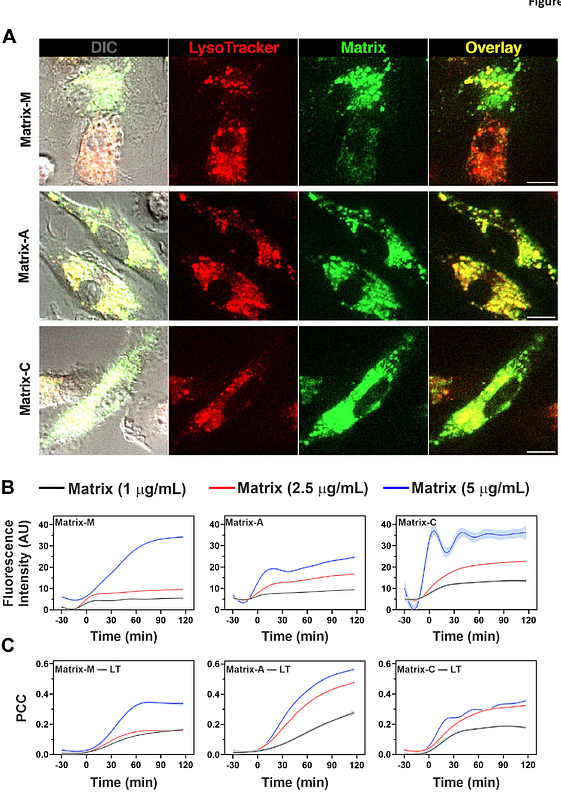Matrix-M(R) adjuvant triggers inflammasome activation and enables antigen cross-presentation through induction of lysosomal membrane permeabilization

Matrix-M(R) adjuvant triggers inflammasome activation and enables antigen cross-presentation through induction of lysosomal membrane permeabilization
Zarnegar, B.; Carow, B.; Eriksson, J.; Spennare, E.; Öhlund, P.; Akpinar, E.; Bringeland, E.; Osterman, I. L.; Lundqvist, L.; Antti, J.; Handin, N.; Helgesson, P.-H.; Bankefors, J.; Bengtsson, K. L.; Sellin, M. E.; Palm, A.-K.; Stertman, L.; Andersson, C. L.
AbstractMatrix-M(R) adjuvant, containing saponins, delivers a potent adjuvant effect and good safety profile. Given that Matrix-M is composed of Matrix-A and Matrix-C particles, comprising different saponin fractions, understanding their distinct roles can provide deeper insight into the mechanism of action of Matrix-M and guide future applications. Here, we demonstrate that antigen and Matrix-M, Matrix-A, or Matrix-C colocalize in lysosomes following uptake by bone marrow-derived dendritic cells. Matrix-M, Matrix-A, and Matrix-C induce lysosomal membrane permeabilization (LMP), but Matrix-C shows the highest LMP potential. LMP is required for interleukin (IL)-1{beta} and IL-18 secretion in vitro. In vivo, a robust adjuvant effect of Matrix-M, Matrix-A, and Matrix-C is observed, both in the presence and absence of the NLRP3 inflammasome. LMP induced by Matrix-M, as well as Matrix-A and Matrix-C, also enables antigen cross-presentation. Thus, Matrix-induced LMP explains the capability of Matrix-M-adjuvanted protein vaccines to induce CD8+ T-cell responses.